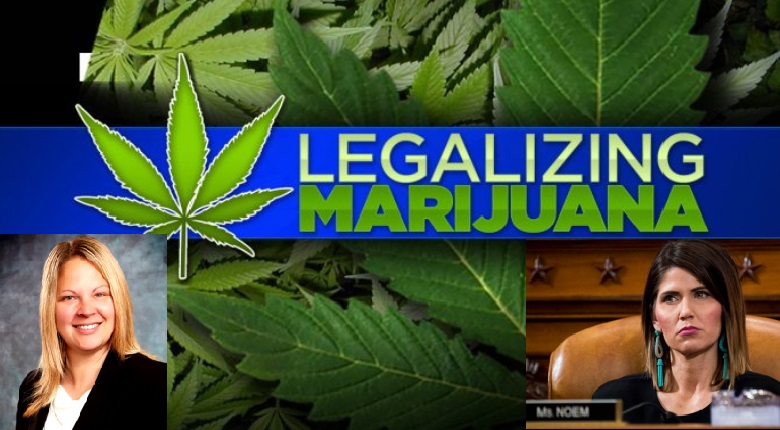- February 8, 2021
- No Comment
- 507
Legalizing Marijuana in South Dakota and ruling of Judge Christina Klinger

On Monday, a South Dakota Circuit Judge Christina Klinger struck down a voter-approved constitutional amendment. The amendment legalized recreational marijuana after Gov. Kristi Noem’s administration challenged it. Judge Christina Klinger ruled the measure approved by voters in November violated the state’s requirement that constitutional amendments deal with just one subject and would have created broad changes to state government. She said in her ruling, “Amendment A is a revision as it has far-reaching effects on the basic nature of South Dakota’s governmental system”. Point to be noted that Brendan Johnson sponsored the amendment and represented a pro-marijuana group in court. He said it was preparing an appeal to South Dakota’s Supreme Court. 2 law enforcement officers, Highway Patrol Superintendent Col. Rick Miller and Pennington County Sheriff Kevin Thom, sued to block legalization by challenging its constitutionality.
It is noteworthy that Rick Miller was effectively acting on behalf of South Dakota Gov. Kristi Noem. Judge Klinger was appointed as a circuit court judge by Noem in 2019. Governor said, “Today’s decision protects and safeguards our constitution. I’m confident that South Dakota Supreme Court if asked to weigh in as well, will come to the same conclusion”. Kevin Thom also admired the court’s decision and said it solidifies the protections of a 2018 constitutional amendment that required further amendments to stick to one subject. Klinger said in her ruling that marijuana legalization would have touched on business licensing, taxation, and hemp cultivation. The amendment would have given the state’s Department of Revenue power to administer recreational marijuana, but it overstepped the authority of the executive and legislative branches of government.
At least 54% of voters approved recreational marijuana in November. Supporters said that legalization creates jobs and raises tax money for governments that badly need it. But opponents said that marijuana leads to the use of harder drugs and other crimes. Lawyers defending legalization had cast the lawsuit as an effort to overturn the results of a fair election. Possessing small amounts of marijuana would have become legal on 1st July, but that will not happen unless a higher court overturns the ruling. It is important that marijuana has become broadly accepted around the United States with a Gallup Poll in November showing 68% of Americans favored legalization. South Dakota was among 4 US States that month to approve recreational marijuana, along with New Jersey, Arizona, and Montana. Still, 15 US States and the District of Columbia have done so.








